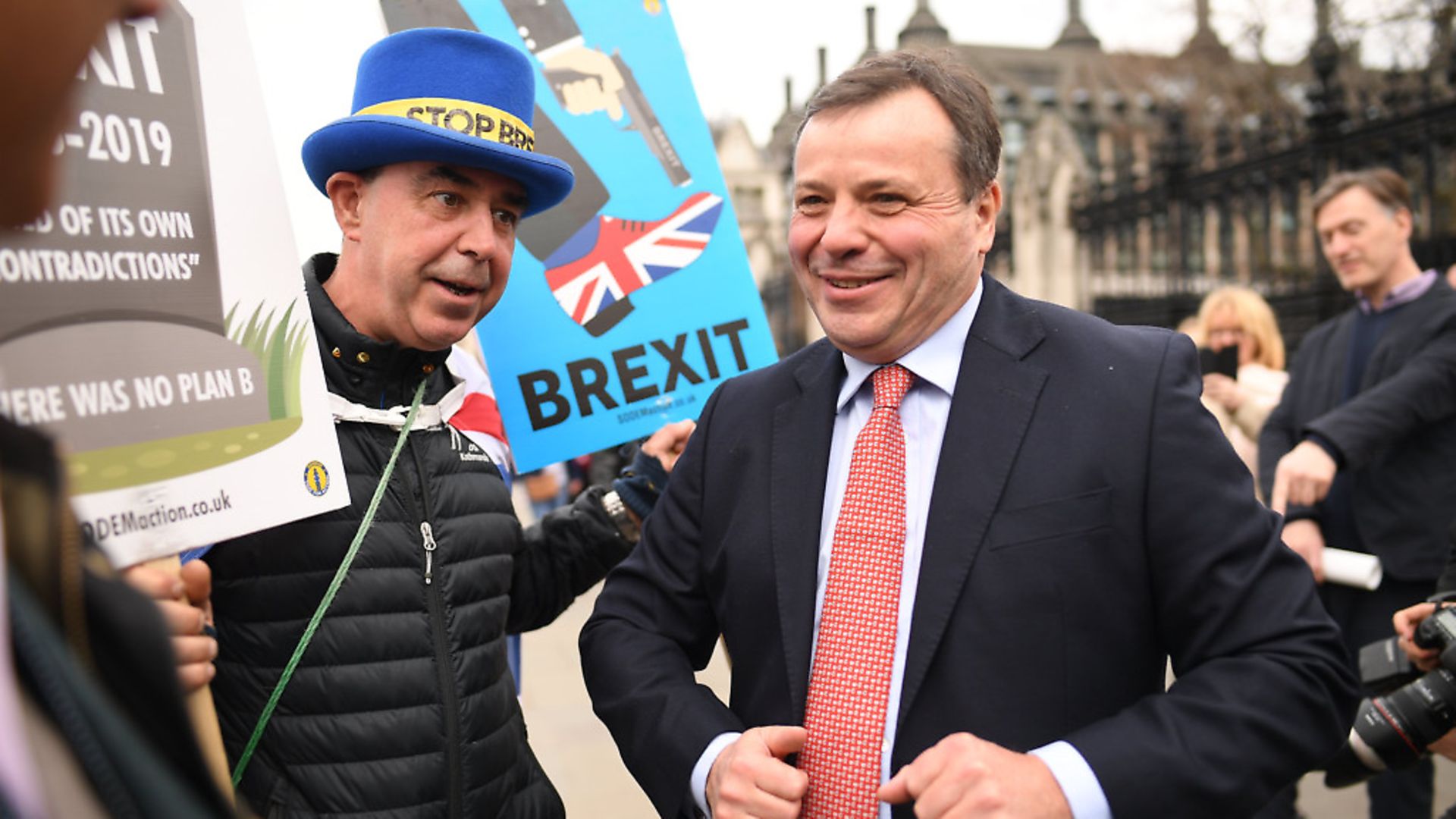
In JAMES BALL’S Deconstructed he discusses how politics must stop the Brexit Party not allegations of wrongdoings.
It wouldn’t be a UK election season without another series of almighty rows about donations and election law.
While a few weeks ago Change UK were getting the rough end of this from those on Labour’s left, the current focus is on Nigel Farage and his Brexit Party, who have been hit by a series of allegations and interventions from Channel 4 News, former prime minister Gordon Brown and the Electoral Commission – not to mention thousands of Twitter users.
The allegations have different levels of evidence, and are at different stages of investigation, but Farage denies wrongdoing in relation to all of the accusations against him.
The claims first broadcast by Channel 4 News relate to Arron Banks – the man who almost single-handedly bankrolled Brexit, and who is under a National Crime Agency investigation for suspected offences during the EU referendum – funding lavish lifestyle expenses for Farage over the course of 2016.
These included a £13,000-a-month house in Chelsea, a car and driver, and even a US promotional trip. As Farage was a sitting Member of the European Parliament at the time these expenses would have been expected to be declared as part of his registered interests.
Farage receives a salary of more than 100,000 euros a year as an MEP, and has declared outside income averaging around 140,000 euros on top of that – but did not appear to declare any of the gifts from Banks.
Farage will face investigation by a committee of MEPs once the new European parliament is elected and convened, and, if it finds against him, could face being reprimanded or having his official salary deducted.
He’s got form for being disciplined, having previously had his salary docked by half for misspending EU funds, while his former party UKIP was asked to repay funds after finding they were used on UK political campaigning.
Given his rhetoric and his history, Farage may find his fellow MEPs none-too-willing to give him the benefit of the doubt on this occasion.
The other questions Farage and his Brexit Party are facing relate to much more recent activities: on Monday, Gordon Brown became one of the most senior political figures to question where the Brexit Party is getting its money from, suggesting that Farage was becoming the “man of the PayPal” rather than the “man of the people”.
While it is legitimate to question the source of the Brexit Party’s funding – it says it’s receiving up to £100,000 a day in small donations – Brown’s allegation is rather bizarre, and doesn’t work as evidence of wrongdoing.
Political parties are obliged to register and report all donations above £500, and to pass on the details of anyone giving more than £7,500 to the Electoral Commission. Anyone giving more than £500 is also required to be allowed to vote in the UK and to appear on the Electoral Roll – and the rules require the parties to have systems in place to track this and make sure they are complying with the rules.
Critics have alleged that by having a PayPal button allowing donations of up to £500 on its website, the Brexit Party might be deliberately avoiding these rules and taking multiple donations of £499 – potentially from foreign sources.
While this would be a breach of electoral law, no-one has offered any evidence that it is happening – only that it would be possible. Brown’s “man of the PayPal” insinuation is particularly odd, given that his own Labour Party website includes the option to donate by PayPal, as does the Conservatives’ website.
The Brexit Party and Change UK have both faced allegations that they have an odd legal structure, as they have incorporated as companies – but this is legal and often a way to operate, at first, while you get your final and official structure in place.
The major parties have incorporated companies as part of their structures, and this does not circumvent any party’s need to comply with Electoral Commission rules.
The parties are also not under legal obligation to publish details of any major funding until their quarterly reports to the Electoral Commission, which will not be available until after the vote. While they’re free to voluntarily answer questions before this time, no party is breaching rules by keeping details of donors private.
None of this is to give Farage or his new party a clean bill of health: given UKIP’s track record with breaches with the Electoral Commission, it is clear why people feel suspicious, and the Electoral Commission itself paid a visit to the Brexit Party to see what systems and safeguards they have in place.
However it is important to note no-one has any proof of wrongdoing, or even any evidence of it – we’re all working in a vacuum of information.
One thing this might suggest – yet again – is that in our current era of post-trust politics, these deadlines for reporting feel slow and aren’t reassuring the public that our elections are fair and their funding transparent. If the rules aren’t working, they may need to change.
There is a second lesson, though: Remain voters are worried about the results of the EU elections, and rightly so – it is likely the Brexit Party will win them.
The danger of shouting too much about funding is not just crying wolf, but rather hoping that electoral law will save us from the ballot box.
That hope is a hollow one. Farage will have to be beaten by political rivals. The Electoral Commission will not do it for them.










